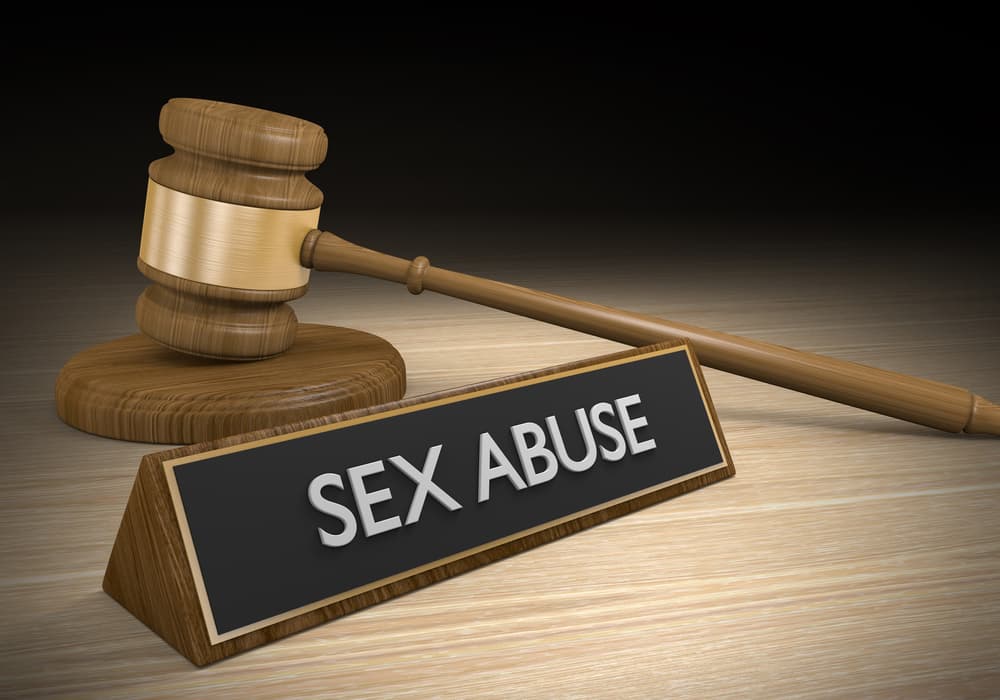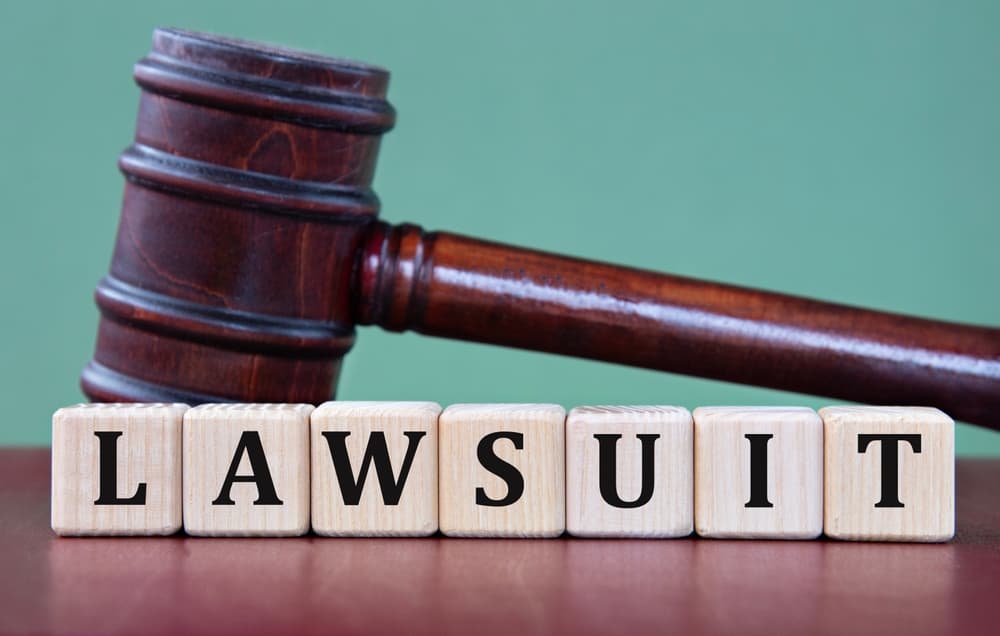Sexual abuse is a deeply traumatic experience that involves any unwanted sexual activity, contact, or exploitation, often carried out through force, threats, or manipulation.
The lifelong impact of this abuse can affect victims’ emotional, physical, and mental well-being. If schools, churches, workplaces, or other facilities allow sexual abuse to occur, it raises important questions about institutional responsibility and failure to protect those in their care.
Navigating these difficult and sensitive situations is never easy, so work with a compassionate and knowledgeable lawyer.
Our attorneys have decades of experience advocating for survivors and holding abusers accountable. We handle cases on a contingency fee basis. This means you owe us no attorney’s fees unless we recover financial compensation for you. We will explain the entire fee structure, including how case costs are managed, during your free and confidential consultation.
With a proven track record of representing hundreds of sexual abuse survivors nationwide, our team is dedicated to supporting you every step of the way as you seek justice, healing, and compensation.
Types of Sexual Abuse: What You Need to Know
- Sexual abuse includes many forms, such as unwanted touching, exploitation, and sexual battery.
- Survivors have legal options in both criminal and civil court.
- A civil lawsuit can hold abusers and negligent institutions (schools, churches, etc.) financially accountable, even without a criminal conviction.
- An attorney can protect your privacy and fight for compensation for therapy, lost wages, and suffering.
Common Types of Sexual Abuse

Many forms of sexual abuse can take place, and each can cause lasting trauma for survivors. So, what are the different types of sexual abuse? Common types include:
Unwanted Touching
Unwanted touching involves physical contact of a sexual nature without a person's permission. This can include acts like groping, inappropriate hugging, forced kissing, or any contact with intimate areas that are not expressly consented to.
Unwanted touching is common in various settings, including schools, churches, workplaces, sports teams, and care facilities, where people may feel too intimidated or powerless to object.
These acts may appear subtle or be dismissed as “innocent,” which makes reporting and accountability challenging.
Sexual Exploitation
Sexual exploitation is the act of manipulating or taking advantage of another person’s sexuality for any form of gain, often through coercion, deceit, manipulation, or online abuse. Common forms of exploitation include producing or distributing child pornography, sextortion, and grooming.
Exploitation cases often involve children, students, or those who are especially vulnerable due to their age, special needs, or social circumstances. Schools, daycare centers, and foster agencies sometimes look the other way or even intentionally misreport allegations if staff or volunteers are accused.
When institutions ignore signs of exploitation, fail to implement adequate screening, or do not enforce clear safety procedures, they can be legally liable for failing to protect victims.
Sexual Battery
Sexual battery, which is the legal term for rape in Florida and some other states, involves any forced or non-consensual oral, vaginal, or anal penetration by a sexual organ or object.
This severe form of sexual abuse can happen in private homes, schools, workplaces, care facilities, or religious settings, often involving individuals in positions of trust or power. Like other forms of sexual abuse, the trauma can be lifelong and is especially devastating in environments where victims should feel safe.
Sexual battery is aggressively prosecuted as a felony offense, with extremely serious legal consequences for offenders. Additionally, institutions that fail to protect victims or ignore warning signs can be financially and legally responsible for the harm suffered.
Incest
Incest refers to sexual abuse or sexual acts between closely related family members or individuals who live together as a family unit. In Florida, any sexual contact between relatives, such as siblings, parents and children, aunts and uncles, nieces and nephews, or grandparents and grandchildren, is considered incest, regardless of age or perceived consent.
This form of abuse is uniquely devastating because it involves a profound violation of trust, safety, and boundaries in what should be a safe environment. Victims of incest often face intimidation, fear, or manipulation that makes reporting particularly difficult.
Sex Trafficking
Sex trafficking occurs when someone is forced, coerced, or manipulated into engaging in commercial sex acts against their will. In Florida, which is one of the states with the highest rates of human trafficking, victims are often vulnerable children, teens, or adults who may be sold or exploited for profit. Traffickers can be strangers, but they may also be friends, employers, teachers, or even family members.
Sex trafficking frequently involves grooming, threats, physical violence, fraud, and emotional control. Victims may be moved across state lines, coerced through mind games or financial control, and experience serious, lifelong harm.
If you or someone you know has suffered any form of sexual abuse, contacting a trauma-informed lawyer can help you understand your rights.
Legal Recourse for Victims of Sexual Abuse
Sexual abuse survivors have legal options to seek justice and accountability, even when criminal charges are not filed or do not result in a conviction. Understanding the differences between criminal prosecution and civil litigation and the specific benefits of civil lawsuits can help victims figure out what steps to take next and how it can help them heal.
Criminal Cases
In a criminal case, the government prosecutes the alleged abuser in an attempt to prove beyond a reasonable doubt that a crime occurred. If convicted, the perpetrator may be sentenced to jail or prison time, probation, fines, and mandatory registration as a sex offender. The goal of a criminal case is to punish and deter criminal conduct, not to provide financial compensation to the survivor.
Civil Lawsuits
A survivor brings a civil lawsuit, often with the help of a lawyer, against the abuser or a responsible institution (such as a church, school, or employer). The standard of proof is lower (“preponderance of the evidence” instead of “beyond a reasonable doubt”), making it possible to obtain justice even if a criminal conviction is impossible. The main objective is compensation and accountability rather than punishment.
Why Pursue a Civil Lawsuit?

Many victims of sexual abuse will never see their abuser prosecuted criminally, sometimes due to lack of evidence, expired statutes of limitations, or a decision by authorities not to file charges. This can be a devastating scenario, but civil litigation can provide a separate and important path to justice. Here’s why survivors may consider this option:
Direct Control Over the Legal Process
In a civil case, survivors control essential decisions throughout the legal journey. The person bringing the lawsuit (the plaintiff) chooses whether to accept a settlement or proceed to trial. It’s not up to the government to decide if the case moves forward as it is in criminal matters.
Civil litigation allows for a more survivor-centric process, focusing on their experience and needs while making offenders and negligent institutions take responsibility for causing harm.
Opportunity to Hold Institutions Accountable
In criminal cases, companies and other entities typically won’t face criminal liability unless their behavior was intentional or particularly egregious. However, civil lawsuits provide a pathway not just for suing individual abusers but also for holding institutions legally responsible when they play a role in enabling abuse.
Organizations such as schools, churches, youth groups, care facilities, and employers may be liable if they ignore warning signs, fail to carry out proper background checks, fail to protect vulnerable individuals, or actively cover up wrongdoing.
Successful civil actions can result in financial compensation for the survivor. They can also prompt institutions to review, improve, or overhaul their internal policies to help make sure nobody else suffers in the same way.
Greater Focus on Victim’s Needs and Healing
Unlike the criminal system, which emphasizes punishing the wrongdoer, civil lawsuits revolve around the survivor’s path to recovery. The law supports victims in obtaining the resources they need to move forward, recognizing that the effects of sexual abuse often last for years or even a lifetime. Survivors can seek restitution for medical bills, therapy, counseling, lost wages, and both past and future expenses tied to their trauma.
There is also recognition and compensation for emotional distress and suffering, which encourages a more holistic healing process and validation of the pain endured.
Bringing Attention and Awareness to Wrongdoing
Filing a civil lawsuit can be a crucial catalyst in exposing patterns of abuse and historical cover-ups within organizations. If these cases go to trial, they are public, which can shed light on systemic problems that need to be addressed and increase public awareness. Lawsuits also give survivors the platform to speak out, share their truth, and potentially prevent others from being harmed in the future.
Why It's So Important To Work With an Experienced Attorney When Filing a Civil Lawsuit For Sexual Abuse
When filing a civil lawsuit for sexual abuse, having an experienced attorney by your side is absolutely essential. These cases are complex, deeply personal, and often involve facing powerful institutions and carefully orchestrated defenses. Here’s why working with the right lawyer can make all the difference:
Deep Knowledge of Sexual Abuse Laws
- Experienced attorneys understand essential procedural rules, including deadlines (statutes of limitations), filing requirements, and how to apply for privacy protections for survivors.
- Legal knowledge helps ensure your claim is filed correctly and isn’t dismissed for technical reasons.
Navigating Legal Complexities With Institutions
- Many abusers act within churches, schools, youth organizations, and other institutions with their own powerful legal teams.
- Attorneys skilled in civil sexual abuse cases know how to hold not just individuals but also negligent organizations accountable for covering up or enabling abuse.
- They know what internal records to demand, how to document institutional negligence, and how to coordinate with law enforcement or regulatory agencies if necessary.
Maximizing Your Financial Recovery

- Your attorney fights for the highest possible settlement or jury award, ensuring nothing gets overlooked or undervalued.
- Lawyers know how to fully evaluate your losses, including:
- Cost of past and future medical care, therapy, and mental health treatment.
- Lost income and potential future earnings if your ability to work is affected.
- Emotional distress, pain and suffering, and loss of enjoyment of life.
- Punitive damages, which penalize the wrongdoer for especially egregious or intentional conduct and deter similar behavior in the future.
Building the Strongest Possible Case
- Experienced attorneys have access to skilled investigators and expert witnesses (such as doctors, therapists, and trauma specialists) who are crucial for proving both the extent of harm and a link to the abuse.
- They know how to secure and preserve evidence, from physical records and emails to surveillance footage and witness testimony.
- A lawyer’s experience can help overcome defenses, such as claims of false memories, mistaken identity, late reporting, institutional denial, or consent.
By working with an experienced sexual abuse attorney, you significantly increase your chances of financial recovery and emotional closure.
Contact Horowitz Law To Schedule a Free Consultation With a Sexual Abuse Attorney
At Horowitz Law, our dedicated team focuses on representing survivors of sexual abuse and assault. We have decades of legal experience and have helped individuals face even the most challenging and powerful institutions, never shying away from a difficult fight. We are committed to achieving justice and have secured substantial financial recoveries for our clients nationwide.
Whatever the circumstances of your case, we are here to offer skilled, compassionate representation. If you or someone you love is ready to take the next step, call (954) 641-2100 to arrange a free and completely confidential consultation with an experienced sexual abuse attorney.
Frequently Asked Questions
Q: Can a sexual abuse case be filed if the perpetrator is not criminally convicted?
A: Yes, sexual abuse cases can be filed as civil lawsuits regardless of whether the perpetrator is convicted criminally. A civil case allows the victim to seek financial compensation for damages, even if the criminal case does not result in a conviction or if a criminal case is never filed.
Q: What should I do if I suspect institutional sexual abuse?
A: If you suspect institutional sexual abuse, contact an experienced lawyer who focuses on sexual abuse cases. They can help guide you through the legal process, gather evidence, and determine whether you have a valid claim. You can also consider reporting the abuse to the appropriate authorities, such as law enforcement or state agencies.
Q: How long will it take to resolve a sexual abuse case?
A: The timeline for resolving a sexual abuse case varies depending on the case's complexity, the evidence available, and the institution's or individual's willingness to settle. Some cases may be resolved in a few months, while others may take several years to conclude.
An experienced attorney can give you a better idea of the timeline based on the specifics of your case.